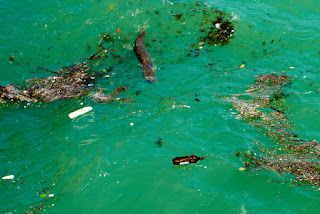I love the stars because they flicker. I love the stars because they recede.
I love the stars because they trace perfect circles if you plant yourself
on a hill and let the aperture stay open all night, exposed.
—Shana Ross, “If Betelgeuse Explodes, I Will Be Sad”
As we assemble each edition of Bacopa Literary Review, we look for themes. One over-arching focus in both 2020 and 2021 is grief. This theme, pervasive in every aspect of our lives for the last year and a half as we all endure the COVID-19 pandemic, is clearly present in this year’s journal. But some of the other themes this year have surprised us, a fascinating and uplifting set of motifs employed in ways as simultaneously jarring and consoling as the image of the little bird in Emily Dickinson’s famous poem “‘Hope’ is the thing with feathers,” who sings the tune without the words--/ And never stops—at all--// And sweetest—in the Gale—is heard.
It would be easy to let grief overwhelm us, in times like these, and some of our selections reflect on that ease. There is the dark, all-encompassing existential agony over the family tragedy expressed in Alec Kissoondyal’s “Smudge.” Its complement, the long slog through the initial stages of grief and into something approximating the rest of life for those left behind, is portrayed in Shuly Cawood’s “Not Naming It.” There is also the gentle, even humorous sense of resignation and peace-making with grief expressed in both Janet Marugg’s fictional vignette “Lila’s Last Day” and Lora Straub’s nonfiction essay “A Fragile Inheritance."
In part as acknowledgement of the need to face and work through the individual and collective sorrows COVID-19 has wrought, we open this year’s collection with Megan Wildhood’s probing, elegiac “Oh. There is No Going Back.” Wildhood’s poem takes up grief and turns it around like a many-faceted gem, examining its dark surfaces and acknowledging the ways it impacts even our memory and understanding of life before the grieving time: the first time I remembered the Before world and it was full/ of holes.
But we’ve noticed plenty of other shared themes in this year’s Bacopa. Most are riffs on the great concerns of human existence, and thereby of most literature—love, joy, struggle, pain, pride, humility, endurance. One motif across genres surprised us, though. Birds—those “things with feathers” and wings.
We invite you to keep an eye out for them as you read your way through this year’s offerings. Some, such as the baby birds in Kissoondyal’s “Smudge,” Adam Knight’s “Little Bird,” and the small bird that crashes into a window at the opening of Elizabeth Christopher’s “Dream Catcher,” show up as emblems of fragility, loss, and, yes, grief. Timi Sanni’s pained, prayerful poem “Orison” even presents us with the antithesis to Dickinson’s eternal, undaunted feathered singer: the bird/ of hope folding its wings, its hollow bones// crushing as they welcome the uncanny force/ of darkness. These birds, and some of the others that flit through the pages that follow, are creatures of night, of darkness or at least a liminal space—the edge of shadow where darkness meets, commingles with light. They remind us that time flows unceasing and life proceeds in all its shades—from drudgery and weariness, pain and fear, through excitement, exultation, and joy—and all those shades are certainly represented in a myriad of tints and tones.
Artists are grappling with the reality that humanity as a whole, the world over, is undergoing a tremendous cataclysm of collective loss and mourning, at this moment of history. People are mourning lost friends and loved ones, lost jobs and businesses, lost opportunities and experiences—from students missing out on graduations and other rites of passage, to families delaying having children, partners delaying marriage, and so much more. For many of us, the pandemic delayed our ability to be physically present with each other, to collectively express and process these many and varied sorrows. For too many of us, a long-delayed process of grieving has only recently begun in earnest.
Our shadow birds remind us, as Shana Ross’s First Prize poem quoted in the epigraph above so presciently puts it, When you live in too much light you cannot see the stars/ yet they exist.
But most of Bacopa 2021’s birds fly in the other direction, and beautifully so, as exemplified by the powerful mythical bird that lends its name to Sergio Ortiz’s fierce “Yo soy el Fénix.” Birds—strong, fierce and joyful—are central characters in both William Nuessle’s “Hero’s Eyes” and this year’s Fiction First Prize winner, Tomas Baiza’s “Huitzilin.” Flight, uplift, release—these themes are woven through every category of writing. Though too many of us are still inside the edge of the shadow, many here at home and around the world are beginning to see the gilded limning of the other side.
We hope you will find yourself lifted, energized, and inspired as we were by the tremendous outpouring of talent and creativity we received for our 2021 journal. May we move onward and upward together, like the tiny winged warriors of “Huitzilin,” out of the global shroud of this pandemic and into the blaze of a new day dawning. May we be so blessed as to know the joy and triumph that surges through the closing line of Baiza’s magical tale: And so, I become light.
—J.N. Fishhawk & Mary Bast









